by Leon Castro
Since the dark days of the Marcos dictatorship, freedom of the press and freedom of expression in the Philippines have never been threatened as viciously as these are today.
As an important part of the struggle to oust the Marcos dictatorship, the 1987 Constitution of the reactionary Philippine Republic includes provisions to safeguard the mass media from attacks by succeeding regimes. Section 4 of the Bill of Rights eloquently states, “No law shall be passed abridging the freedom of speech, of expression, or of the press, or the right of the people peaceably to assemble and petition the government for redress of grievances.”
Alas, such eloquence and grandness of purpose may prove no match to Rodrigo Duterte’s vindictiveness and viciousness against those he perceives to have an axe to grind against him.
Duterte’s attacks against the mass media apparently stemmed from a perceived slight. He has accused giant media conglomerate ABS-CBN of taking money but refused to run his campaign advertisements during the anomalous 2016 presidential polls. He also accused the Philippine Daily Inquirer of consistently running stories pointing out his bloody human rights record as Davao City mayor to ruin his candidacy. For these and other perceived slights, Duterte embarked on a vicious campaign and direct attacks against Philippine mass media.
A regime propped by trolls
Duterte started out by deploying his army of trolls and bloggers, led by a former broadcaster who himself had a checkered career before parlaying his political connections to land a job as presidential communication secretary. The regime hired and pays expensive social media influencers who have no qualms in putting out outright lies and disinformation to undermine the credibility of critical media outlets. The lies of the likes of Mocha Uson, RJ Nieto, Sass Sassot and other highly-paid bloggers have been consistently exposed, yet they blithely keep at it as they enjoy Duterte’s unwavering support and encouragement. They have replaced the likes of Jim Paredes, Leah Navarro, Cynthia Patag, among others, of the notorious Yellow Brigade of the past Benigno Aquino regime.
Paid online trolls under the direction of the regime’s black propaganda operators work round the clock to undermine reports of highly-regarded outfits such as Vera Files and Reuters and cyber-bash respected journalists like Ed Lingao, Raissa Robles, Inday Espina-Varona and many others with pre-formulated “comments” they did not even bother to change even as they were blasted on the same threads one after the other. Many other journalists have reported threats and harassment by either trolls or known Duterte supporters.
All too willingly Duterte does his part in undermining mass media and the journalists’ credibility in the eyes of the people. His arsenal of attacks was not limited to a steady stream of invectives but include outright false accusations as he did with Inquirer’s Karlos Manlupig. He also catcalled female journalist Mariz Umali of GMA 7 on live television. Woefully, his tirades are often met with laughter and approving applause by his blinded supporters. Duterte himself is his regime’s worst troll.
Attacks against media outfits
But Duterte’s growing tyranny has gone beyond verbal assaults. His regime is making good his threats against his perceived enemies in the mass media. Duterte’s threats to punish the owners of Philippine Daily Inquirer forced them to negotiate a sale with San Miguel Corporation tycoon Ramon Ang who is known to be friendly with the tyrant. There are rumors that notorious attack dog Rigoberto Tiglao would be appointed as the newspaper’s new editor in chief once the sale papers have been signed.
“Supermajority” minions in Congress are heroically aiding the tyrant in his attacks against the mass media. They have refused to table the bill granting a 25-year extension to Catholic Media Network’s broadcast franchise which operates 54 radio stations nationwide. In a statement, international media group Reporters Without Borders expressed concern that the “refusal” of lawmakers to renew the franchise appeared to be “politically motivated,” given the Church’s critical stance on President Duterte’s bloody campaign against illegal drugs. The Protestant group National Council of Churches of the Philippines, which consistently denounces human rights violations by the Duterte regime, is facing similar problems with its broadcast franchise extension. It too operates several radio stations nationwide.
On January 9, 2017, the National Union of Journalists of the Philippines (NUJP) suffered a denial of service on its website, www.nujp.org. Prior to the attack, the group released a statement against President Duterte’s declaration that he was “playing” with the media. Duterte said in a CNN Philippines interview on 29 December 2016, “Nilalaro ko kayo. Mahilig talaga ako (sa) gan’un. Alam ng team ninyo mahilig ako magbitaw ng kalokohan.” The NUJP statement was flooded with hate comments from Duterte supporters.
In January this year, the Securities and Exchange Commission, acting upon direct orders from Duterte, declared Rappler’s license as violative of the Constitutional provision on foreign ownership of mass media organizations. Despite the government’s legalese and vigorous denials by its mouthpieces, it could not be denied that Duterte wanted to punish the online news outfit for its reportage of human rights violations in the country.
In February, alternative media outfit Kodao Productions’ website www.kodao.org was hacked with a code injection attack that prevents its webmasters from logging in and its growing number of readers from accessing the site. Kodao said online forensic investigations it conducted lead them to believe the attack could only be the handiwork of top-tier hackers, such as those employed by governments and intelligence agencies. As the media outfit that most comprehensively reports on the peace process between the National Democratic Front of the Philippines and the Government of the Republic of the Philippines as well as other social justice issues, the temporary loss of Kodao’s website denies the public of a chance to weigh in on the peace agenda.
Media killings continue
Much like when he was Davao City mayor, Duterte’s presidency is littered with the dead and wounded bodies of working journalists. A joint statement by the NUJP, Center for Media Freedom and Responsibility (CMFR), and the Philippine Center for Investigative Journalism (PCIJ) last November 23, 2017, on the 8th anniversary of the Ampatuan Massacre, said six journalists have been killed under the Duterte regime while eight have survived slay attempts and received death threats.
The situation can turn for the worse with the likes of blogger Nieto encouraging his fellow Duterte blogger to confront photojournalist Jes Aznar once he leaves Marawi City or trolls threatening Al Jazeera reporter Jamela Alindogan and Malacañang beat reporter Pia Rañada with rape. Just recently, Rañada was also banned from covering Malacañang simply because she is from Rappler.
Three libel cases have been filed against journalists under Duterte and four old cases have led to the arrest of the accused.
NUJP, CMFR and PCIJ have also complained that the Duterte regime puts journalists’ lives in danger by compelling them to participate in so-called raids that all too often end up in the killing of poor drug suspects. In addition, the police tries to influence how Duterte’s drug war is being reported. “Against their will, media personnel are sometimes compelled by police officers to sign on as witnesses in police anti-drug operations, supposedly as mandated by the law. Media team members are asked to sign on to the police’s inventory reports on the items that had been seized during police operations, in the form and manner that the police had prepared these,” the group said. This practice exposes media personnel to serious legal implications and real conflict of interest, they added.
On Sept. 13, 2017, the Philippine National Police, through its spokesperson Supt. Dionardo Carlos, ordered that spot reports would not be released to reporters unless the “head of office, his duly [designated] representative, his PIO (public information officer) or his spokesperson” determined that such release would not affect an investigation. Carlos reportedly said that the directive restricting journalists from obtaining spot reports was issued as early as Feb. 18, 2014. This goes against the very grain of another of Duterte’s campaign promise, that of freedom of information.
NUJP, CMFR and PCIJ said that the Duterte regime’s flow of official information has been mired in apparent propaganda. “Although a Freedom of Information policy has directed all offices in the executive branch to respond to requests for information, far too many exceptions and denied requests have rendered the supposed policy of openness a farce,” the groups said. They also complained of a remarkable scarcity of substance of the information fed them in official press briefings during milestone events, such as the most recent ASEAN Summit or during the war in Marawi. They complain of Duterte’s communication team’s cavalier stance in throwing around facts out of context, and dishing out partial truths, and even fabricated stories and photographs.
Weaponizing fake news
As the regime attacks journalists who publish critical reports, it also unleashes fake news to supplant legitimate media outfits to mislead the people from Duterte’s human rights violations, corruption, foreign subservience and other inanities. As armies of trolls bombard websites and social media platforms with lies and threats, pro-Duterte websites abound, publishing fake news that twist facts in all incredible manners.
This compelled the Catholic Bishops Conference of the Philippines to issue a list of fake news sites in January 2017, followed by a pastoral letter June of last year. After the list’s publication, some of these websites have been “killed” or their urls changed. Still, a good number of these remain.
The NUJP, in cooperation with an advertising agency, also launched in 2017 an advocacy website called Fakeblok that red-flags websites publishing fake news. This earned for the organization and the ad agency multiple national awards for confronting the fake news phenomenon that is being used with abandon by the Duterte regime.
But fake news is not confined to online platforms. Fake news is in fact wielded as a black propaganda weapon by the Duterte regime that not only victimizes netizens, it also abets the regime’s killing spree. The Philippine National Police (PNP) use these fake news sites to blame extrajudicial killings victims for being illegal drug peddlers and criminals.
But nothing beats the Armed Forces of the Philippines (AFP) in its mastery of news fakery. It starts from consistently issuing news releases filled with lies and conducting press conferences that twists facts like no other. The mercenary forces of the reactionary state use fake news to cover up both its many battlefield losses and its atrocities against civilians and their communities. This is never been more blatant in its handling of Filipino journalists covering the Marawi siege for six long months. Never was a news coverage been so managed as Marawi that very few reports actually described why an entire city has to be totally destroyed and hundreds of civilians killed just to flush out a handful of gunmen.
Thankfully, these fake news sites and its entire machinery under the Duterte regime is being exposed and the people are already starting to dismiss them as nothing more than lies, albeit dangerous.
Militating the press
Duterte is making the same mistakes his idol Marcos did during his dictatorship. He is not only alienating the mass media, he is making them his enemies. His toxic mix of tyrannical power and violence and public censure against legitimate mass media, on one hand, and lies and misinformation peddled by his trolls and paid hacks, on the other, will likelly revive the phenomenon called the “mosquito press” which contributed to Marcos’s downfall.
Responding to attacks against media outfits and reporters, journalists from all over the country are bonding together—organizing forums and rallies to condemn attacks against press freedom. More and more journalists are publishing articles reporting on the regime’s corruption, subservience to foreign powers, human rights violations and even the Duterte family’s incredible and tasteless sense of entitlement.
All these would only help bring the current Malacanang tyrant to his knees and help cause his eventual and inevitable downfall.


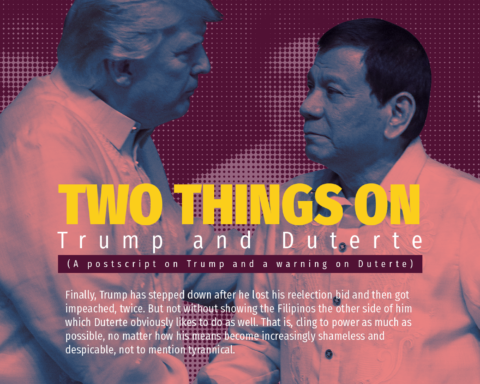
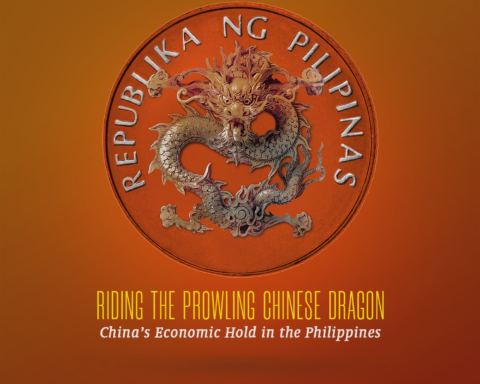
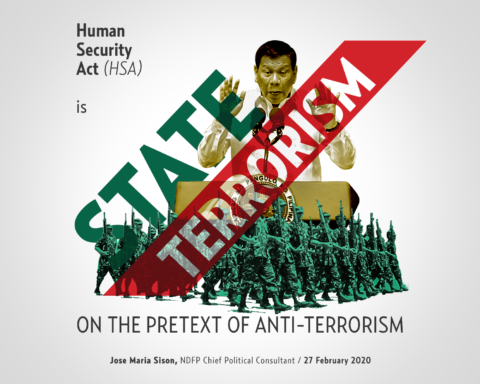
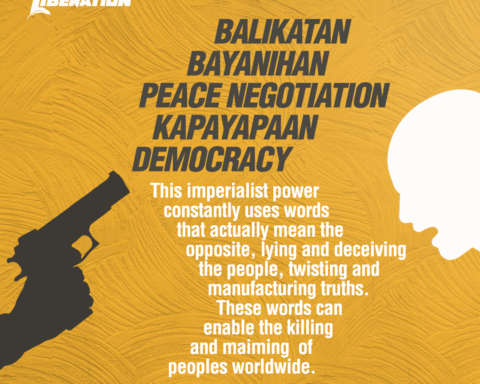
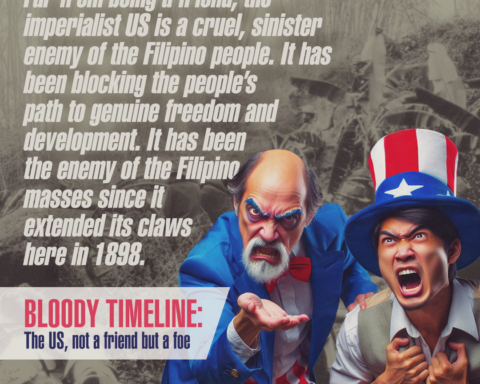
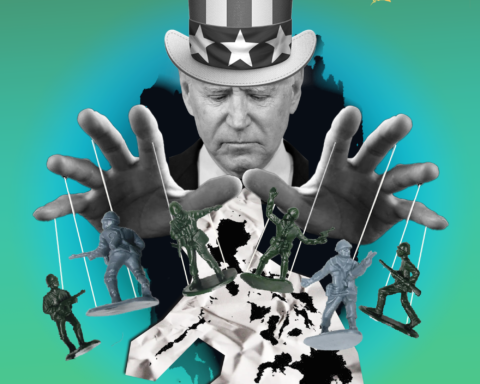


F*ckin’ awesome things here. I’m very glad to see your post. Thanks a lot and i am looking forward to contact you. Will you kindly drop me a mail?